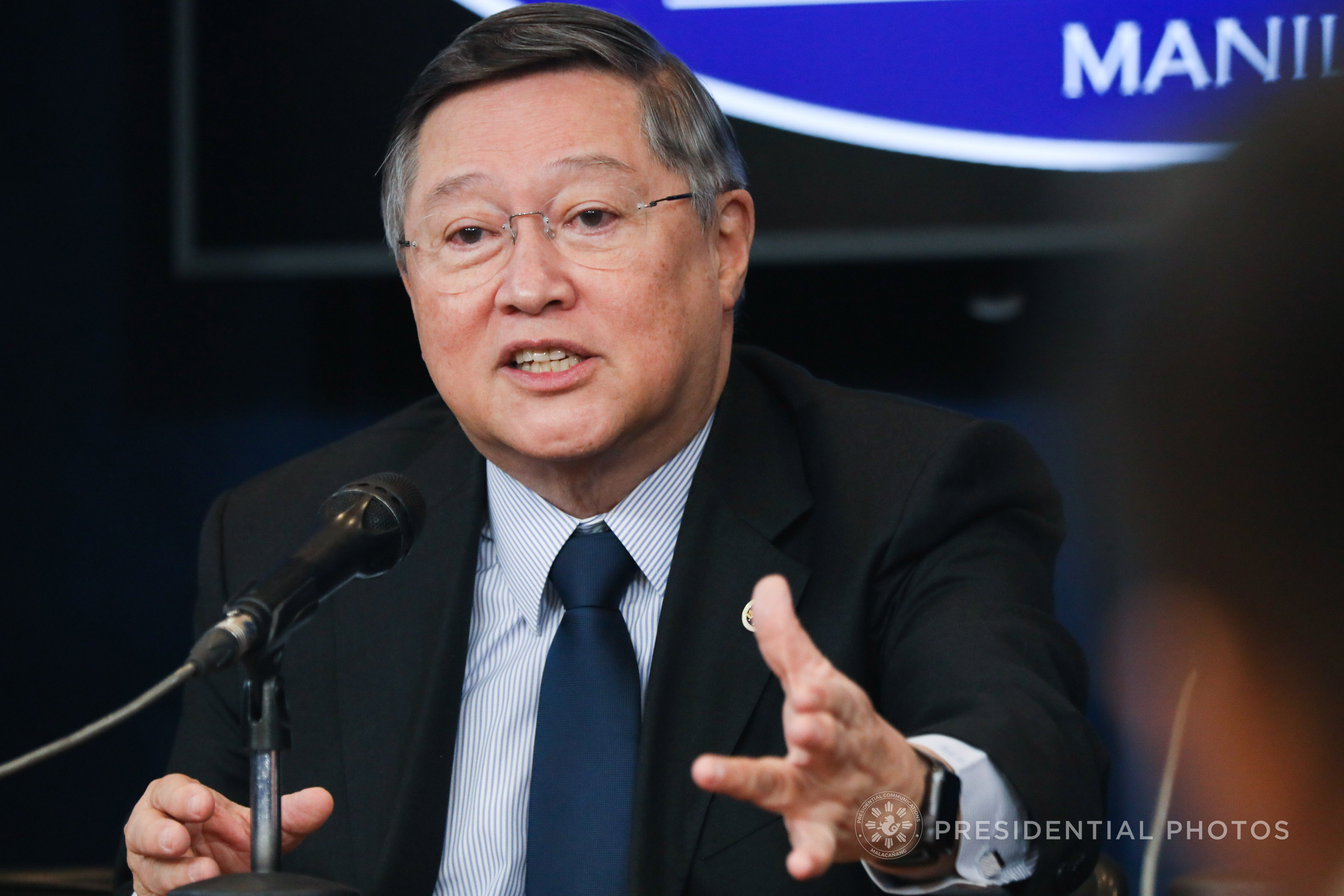DOF: Panda bonds issuance in China likely next week

Finance Secretary Carlos Dominguez III. (Photo by TOTO LOZANO / Presidential Photographers Division)
The Philippines’ first foray into the Chinese debt market is expected to happen as early as next week with the issuance of $200 million in three-year panda bonds, Finance Secretary Carlos G. Dominguez III said Wednesday.
Dominguez told participants of the 28th Inter-Pacific Bar Association Annual Meeting and Conference that National Treasurer Rosalia V. de Leon is now in China for a roadshow on the upcoming panda bond issue.
Panda bonds are renminbi-denominated debt paper sold in China by non-Chinese companies and governments.
Dominguez later told reporters that de Leon and her team are assessing market conditions in China, specifically the spreads, to see if it is a good time to sell panda bonds.
The Finance chief said that if conditions are deemed good, the issuance will push through next week or anytime within the month.
The Philippine government earlier secured the Bank of China’s approval to issue panda bonds worth 1.456 billion reminbi or about P12 billion, of which the net proceeds will be remitted outside of China to serve as part of the Philippines’ international reserves, the Department of Finance said last Monday.
According to the DOF, the planned panda bond issuance was given the highest rating of ‘AAA’ with a stable outlook by China Lianhe Credit Rating Co. Ltd., a top Chinese debt watcher.
The DOF said that Lianhe noted of the Philippines’ “strong and consistent economic growth, low level of external debt and ample foreign and current account reserves as plus factors for its float this year.”
Also, the credit rating agency “factored in the strong economic ties between Manila and Beijing, and the Duterte administration’s stable source of payment from growing government revenues,” the DOF added.
“Lianhe Ratings expects the Philippines to have a GDP [gross domestic product] growth of around 6.8 percent in 2018. At the same time, the unemployment rate of the Philippines is expected to remain stable and CPI [consumer price index) growth may stay within the target band [of 2-4 percent] set by the BSP [Bangko Sentral ng Pilipinas],” it said in a report.
The debt watcher said that “the successful implementation of President Duterte’s 10-point socioeconomic agenda, citing among them the first package of the comprehensive tax reforms, Tax Reform for Acceleration and Inclusion (TRAIN), will help the Philippines achieve more rapid and equitable economic growth in the following years,” according to the DOF.
In its report, Lianhe said that “the country’s strengths lie in its strong and consistent economic growth, with employment continuously improving; government debt ratios that are continuously improving and well covered by fiscal revenue; large remittance inflows that contribute to the country’s ability to earn foreign exchange; low level of external debt and the very strong capacity to repay these obligations; and stable source of repayment from growing government revenues.”
